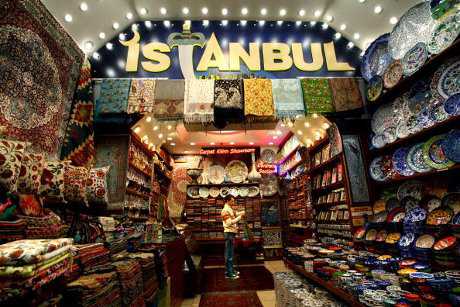The melodic wail of the azan, the call to prayer, pierces my jet-lagged sleep. “Allahu Akbar! Allahu Akbar!”God is great! God is great! calls the amplified muezzin in a high tenor. Quickly following, second muezzin sings in a resonant baritone. Before the first begins his next phrase, a third chimes in, another tenor with a faster tempo.

Dennis Jones | Special to the Daily
Somewhere more distant, a fourth azan rings forth and maybe a fifth. I can’t tell. The melodious call to prayer reverberates along the dark, narrow streets and alleys of Sultanahmet, Istanbul’s old city. The sounds echo off walls and buildings, rising to a glorious cacophony until each muezzin finishes his turn, and once again quiet rules the dawning day.
I have returned to Turkey with a contract for a book from a Turkish publishing house. Seeing my previous work, an editor felt there was a place in their catalog for a book by an American photographer-writer that could reinforce the bridge between Western misconceptions and the reality of his dynamic country.
They’ve invited us for lunch. Their office is somewhere in Asia — that is, the Asian side of the legendary Bosphorus dividing not just Istanbul, but Europe and Asia as well.
“Take a ferry from Eminonu to Uskudar, then a taxi to my office,” wrote the editor. On the ferry, address in hand, we meet a kindly, English-speaking Turkish gentleman who takes us under his wing. “Don’t take a taxi. They’ll drive you around and cheat you.” He finds the right bus, even pays our fare and hands me his phone number, saying, “Call me when you’re done and I’ll show you the fantastic view from Camlıca Tepe.”
Following our course on Google Maps shows me where to get off, but when I get to the location shown on the app, it’s not there. Quizzical gestures with the address to a passerby points me to the building two blocks away.
The meeting goes well. We’re shown warm, Turkish hospitality and the impressive variety and quality of books they publish. When finished, the editor calls our new friend and we agree to meet at the ferry. How can one pass up such serendipitous hospitality?
Weather has turned. It’s overcast, not an afternoon to photograph a spectacular mountaintop view. He suggests a ferry ride through the Golden Horn, the body of water separating old Istanbul from the more cosmopolitan Beyog’lu district.
After passing beneath the famous Galata Bridge, we zig-zag from shore to shore, dropping people off, picking others up. Dusk descends. A glorious sunset spreads behind the city, silhouetting mosques and their minarets against a crimson fire.
Exhausted from the day, jet lag and the cold (it is, after all,winter), our friend sees us off in Eminonu, promising to meet another day for the view from the mountain.
The next day we spend wandering the streets of Sultanahmet and at Istanbul’s archeological museum, where millennia of human habitation and creativity are on display.
If there is one thing that dominates your awareness in Turkey, it is history. Vast expanses of human history pervade the Anatolian landscape. The Tigris and Euphrates, those rivers of legend that cradled civilization, have their source high in the mountains of northeastern Turkey.
Evidence of humanity extends back 65,000 years! Civilization though, doesn’t begin until the Neolithic, around 8,000 B.C.E., when mankind evolved from its hunter-gatherer lifestyle and learned to cultivate crops and domesticate animals. The Anatolian Peninsula, which makes up the 97 percent of Turkey not in Europe, is chock full of Neolithic sites.
The Neolithic was only the beginning. Cities sprang up. Bronze replaced stone, iron replaced bronze. Armies conquered. Empires grew, clashed and disappeared time after time over the thousands of years before the Greek roots of our civilization appeared.
The entire panoply of early civilization and much of the history of the past two millennia can be seen. So here, in two short days, I experience a summation of my book: the incredible warmth and hospitality of a Muslim culture firmly rooted in history.
Before I really get to work though, we’ll escape winter and head south to Israel, returning in a few weeks to southern Turkey, where spring will have begun.
Dennis Jones is a local professional photographer and writer. He and Yolanda Marshall are traveling in the eastern Mediterranean. To see more photos, visit his blog at www.dreamcatcherimaging.com.
via Istanbul is wearing its history on its sleeve | VailDaily.com.

